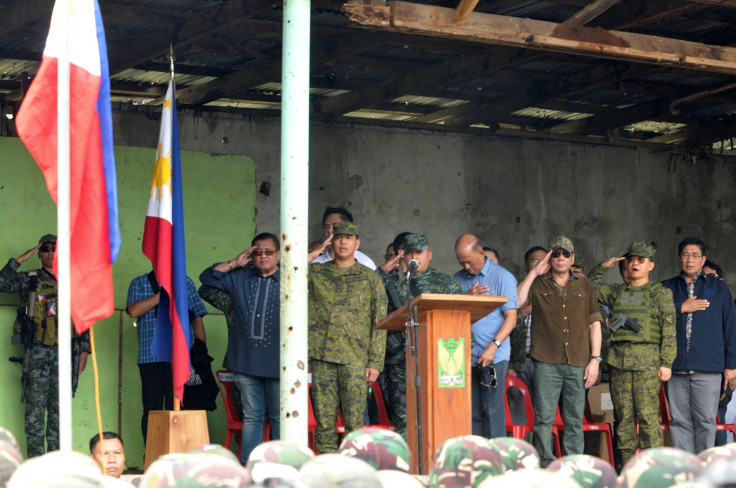Antonio Halili Facts: Philippines Mayor Assassinated, 'Walk Of Shame' Policy Probable Motive

Antonio Halili, the mayor of Tanauan, Philippines, who was known for his notorious policy of parading drug dealers and other suspected criminals on the streets as a form of punishment, was shot and killed at a flag-raising ceremony at the Tanauan City Hall on Monday morning.
The incident took place around 8 a.m. local time (8 p.m. EDT, Sunday). Halili was rushed to the Reyes Memorial Hospital in the city and was declared dead after an hour.
“We are shocked, we are saddened,” Vice Mayor Jhoanna Villamor, who was standing beside Halili, said.
UPDATE: Tanauan Mayor Antonio Halili was declared dead on arrival https://t.co/iEdkoxu8VA
— CNN Philippines (@cnnphilippines) July 2, 2018
Halili was shot from a distance, most likely with a 5.56 or 7.62 caliber high-powered rifle, Provincial Chief Superintendent Edward E. Caranza said. He died from a single bullet to his chest.
Philippine National Police Chief Director General Oscar Albayalde said a regional special task group had been convened to investigate the killing. His policy of parading suspected criminals is being considered a probable motive behind his assassination.
The shooting was captured in a harrowing video, which has gone viral on social media. Although the victim is not seen in the clip, a shot is heard ringing out as national anthem is played and the government officials sing along with their hands on their chests. The shot, fired by an unknown assailant, is followed by panic among the attendees and pandemonium.
The following video might be disturbing for some readers:
Watch | Aktwal na video ilang segundo bago barilin si Tanauan Batangas Mayor Antonio Halili sa flag raising ceremony kaninang umaga.
— Jeff Caparas (@jeffcaparas) July 2, 2018
📹 Gerry Yson Laresma pic.twitter.com/zm9z4v3ORH
Halili became the talk of his country after he implemented his “walk of shame” project. Under the project, suspected drug dealers were paraded around the city streets for everyone to see. Although his act of publicly shaming suspected criminals became famous — or rather, infamous — in 2016, examples of his method of justice dates back to 2014.
He was heavily criticized by human rights groups for forcing a man who allegedly stole fish to walk in public with a sign proclaiming the crime he was accused of.
In the same year, Halili authorized an “anti-crime group,” which consisted of 70 government officials, who dressed in black and patrolled the streets of the city, armed with guns, as part of his support toward Philippines President Rodrigo Duterte's infamous war on drugs. Under Duterte’s zero tolerance policy, thousands of suspected drug users and dealers were gunned down by police and vigilantes.
“They call me the ‘Duterte of Batangas’” Halili told CNN in 2016.
He defended the controversial “walk of shame” policy in 2016.
“We parade rapists, thieves," apart drug dealer, he told CNN. "Just those who do wrong."
However, he said he ended the policy after Duterte was sworn in as president because he did not want police to “misconstrue” his actions.
“Somehow there is a lot of confusion. The President will say 'I will kill them all' then backtrack. So as a mayor it can be confusing what to do,” he said.
Halili’s supervisory powers over the local police was stripped in October 2017 after his name was supposedly included in a Philippine Drug Enforcement Agency list of public officials linked to the illegal drug trade. The Tanauan mayor denied the allegation against him, and questioned the reliability of the intelligence gathered by the anti-drug task force that led them to name him as one of the suspects linked to the illegal trade.
“No one is safe – mayors, governors, congressmen – just a false intelligence report by the police can end up with any of them being destroyed,” he said in an interview on August 2016, South China Morning Post reported. “I have a feeling they (police) are going after the small fry to frighten the people.”
© Copyright IBTimes 2024. All rights reserved.












